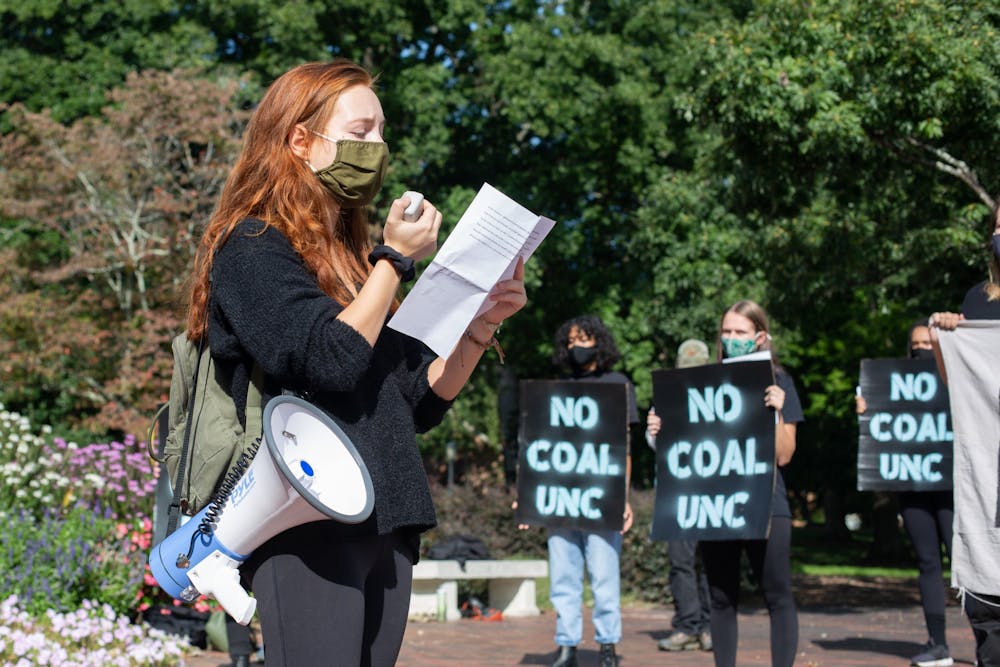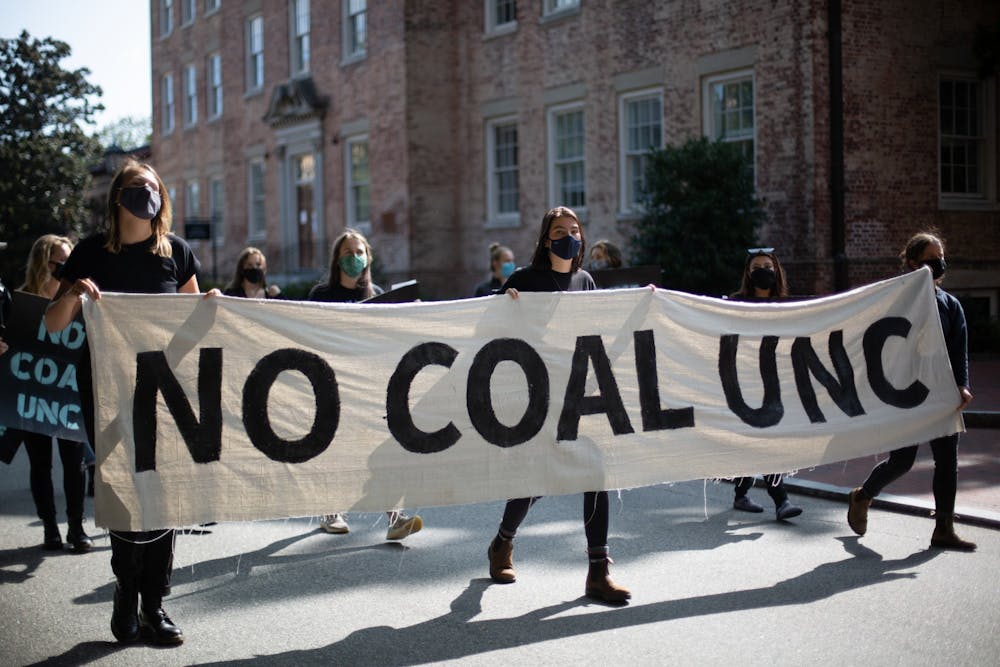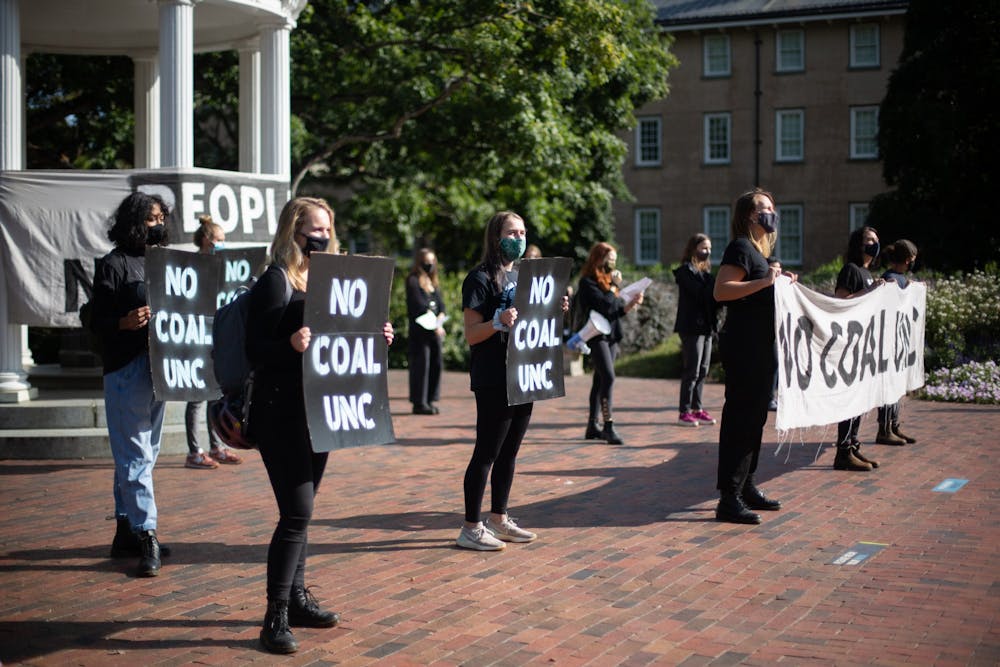Environmental activists held a “No Coal UNC” rally in-person at the Old Well and virtually on Zoom Tuesday, demanding that the University stop using its coal-fired power plant by 2023.
Drawing from the University’s response to COVID-19 and the national reckoning on racial injustice, speakers condemned UNC's coal use for its disproportionate effect on the historically-Black community around the plant.
Claire Bradley, a UNC junior and co-hub coordinator for the Chapel Hill & Carrboro Sunrise Movement, said coal use intersects with the Black Lives Matter movement, community safety, and the COVID-19 pandemic.
"I think UNC has mishandled all three of those," Bradley said. “The use of coal is a risk to public health, the continued use of University police and our relationship with the Chapel Hill Police Department is harmful to BIPOC students, and our mishandling of the COVID-19 pandemic has caused a lot of people harm."

The Center for Biological Diversity and the Sierra Club organized the rally following recent legal action they have taken against UNC. The complaint, scheduled to enter mediation on Friday, alleges that the power plant has violated the Clean Air Act.
“There are 10 claims in the complaint and they fall roughly into three categories,” Perrin deJong, the Center’s North Carolina staff attorney said. “There are substantive pollution control violations, there are failures to monitor pollution from various parts of the facility, and then there are failures to report those violations to the regulatory authorities.”
At the Old Well, activists staged a socially-distant protest, holding a large black-and-white banner saying “No Coal UNC” towards South Building, chanting “people over profits, justice over greed, we demand accountability!”





